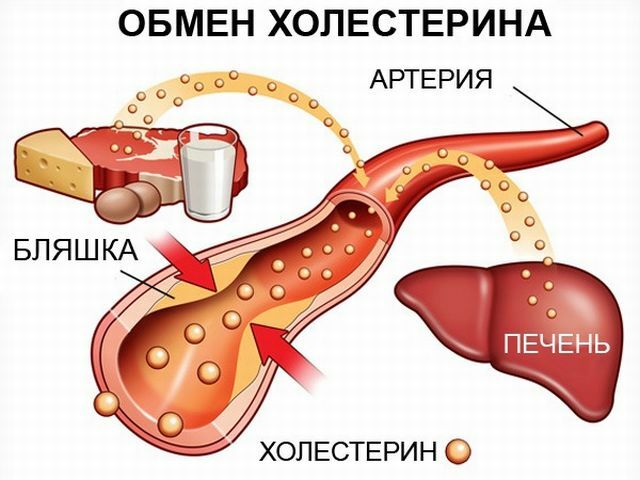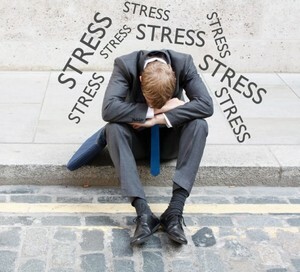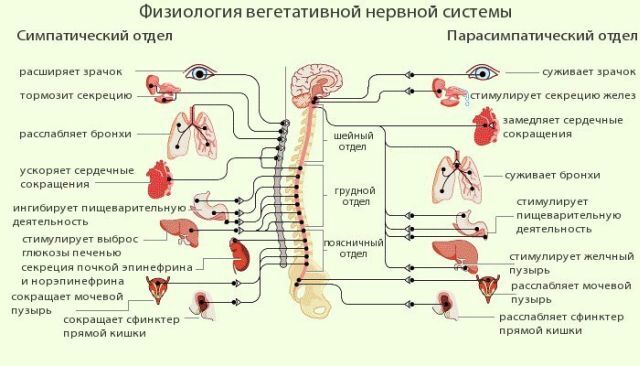 Today the psychologist is considered to be one of the most necessary and indispensable specialists in enterprises and institutions. His qualified help may be needed when there is a need to clarify any diagnostic things.
Today the psychologist is considered to be one of the most necessary and indispensable specialists in enterprises and institutions. His qualified help may be needed when there is a need to clarify any diagnostic things.
Of course, psychologists can not put a competent medical diagnosis, but they can identify the primary processes of the problem.
Most often the work of a specialist is to identify violations in the field of higher mental functions of man. It is for this reason that it is believed that neuropsychological diagnostics plays an important role in the life of every person.
What is the diagnosis of this type of
Neuropsychological diagnosis is a certain study that is aimed at a thorough study of mental processes. Such diagnostics can be recommended for carrying out, both in children's and adults.
Usually, various diagnostic tests and exercises are used to carry out the diagnostics, which make it possible to study the state of memory, attention, thinking, speech, perception and other mental processes. 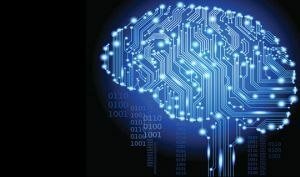
Indications for carrying out neuropsychological diagnosis in both children and adults can be the following:
- schizophrenia;
- various mental disorders that develop with an organic psychosyndrome;
- adverse effects of craniocerebral injury;
- stroke.
Neuropsychological study allows to establish the presence of the following deviations:
- changes in the higher mental functions of a person;
- evaluation of injuries received;
- development of sensory aphasia;
- disorders in neurodynamic components;
- identification of the key points of the problems, which are subsequently corrected.
For a thorough diagnosis will take about a couple of days. In this case, a specialist can divide all meetings into several sessions, which will last from 1 to 1.5 hours.
The results of the research are primarily necessary to enable the specialist to correctly build a program of restorative training, which results in a positive impact on the damaged higher mental functions.
Applied research methods
In order for the results of the research to be as accurate as possible, the psychologist can resort to the following classical methods of neuropsychological diagnostics:
- Topical .It is the most important and informative, as at this stage of the study there is an establishment of damaged areas of the brain
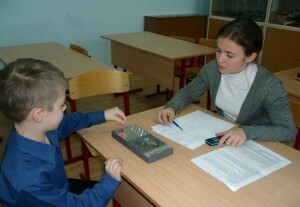 .Damage to brain structures can be a consequence of the development of tumors, vascular diseases and intoxications by various chemical substances( drugs).
.Damage to brain structures can be a consequence of the development of tumors, vascular diseases and intoxications by various chemical substances( drugs). - Nosological .Used in practice is extremely rare. It consists in identifying a specific disease from the list of existing symptoms of the disease for which such signs are characteristic. For example, when diagnosing aphasia or apraxia, the main task is to understand what caused the development of such disorders.
- Functional .The constituent part of the event. Thanks to it, the location of the lesion and the degree of its disturbances are established. It is these indicators that allow us to talk about the future correction of the patient.
- Individual-typological .It is based on the determination of the personality structure, namely character, temperament and others. For the diagnosis of adults, a specialist can resort to a variety of methods and tests. For children, it is advisable to use the game forms of diagnosis( for example, drawing, kukloterapiya and others).
- Diagnostics of the development of .It is often performed in childhood, and is aimed at identifying abnormalities in the initial stages of development. Can be conducted both individually and in groups. Do not forget that the results of the study are significantly different from those in adults.
Neuropsychological recovery of
functionsNeuropsychological correction is a complex of effective measures, which are primarily aimed at eliminating defects that were identified during neuropsychological diagnosis.
The complex of these measures also allows to determine:
- the level of man's fatigue;
- degree of absent-mindedness;
- speed of degradation;
- changes in mental activity;
- improper development of speech;
- violations in the functioning of memory and attention;
- inability to concentrate in the performance of mental activity.
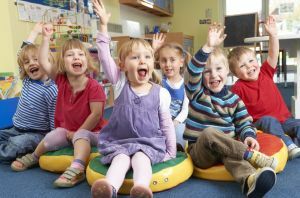 Correction of all diagnosed abnormalities is done in several sessions. They can carry an individual or group character.
Correction of all diagnosed abnormalities is done in several sessions. They can carry an individual or group character.
Neuropsychological diagnosis and correction in childhood gives the child the opportunity not only to cope with all difficulties in the course of his development, but also to form his personality and character.
After such exercises the child becomes self-confident, learns to control his emotions, concentrate attention and correctly correct mistakes made during the lesson.
It is believed that correction is needed not only for children with identified impairments of mental functions, but also for any other child who, for example, is preparing to go to a kindergarten or school.
Classes of this kind allow an ordinary child to become more familiar with the world around him, learn to communicate and interact with other children. Babies who have completed the group training course are much quicker and easier to change the situation and are included in the educational process.
Preparatory phase of
Before the child is sent for neuropsychological correction, the first thing to do is to establish the 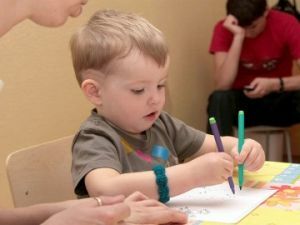 level of the development of his brain structures.
level of the development of his brain structures.
Depending on the results obtained, the level and methodology are chosen according to which the psychologist will continue to work in the future.
If a baby has speech problems, then it's best to start with music or sensory exercises. This will interest the baby and include it in the workflow.
Methods and exercises used
The neuropsychological correction program is usually divided into 12 or 24 sessions. Meetings are mandatory conducted until the  until the diagnosed deviations are eliminated.
until the diagnosed deviations are eliminated.
If the classes will be held several times a week, the total correction course will take approximately 2-3 months.
The duration of such a meeting can vary from 50 to 60 minutes, while in the classroom there can be from 4 to 6 people.
Each meeting consists of carrying out of such techniques and exercises:
- motor exercises ( are concluded in sensorimotor correction);
- cognitive exercises ( aimed at the formation of higher mental processes in children).For this, different games and tasks are perfectly suited;
- respiratory gymnastics ( promotes relaxation of all muscle groups);
- body-oriented therapy ( performed only with physician's recommendations).
In addition to this, special importance in the lesson itself takes the performance of such exercises:
- stretching( up to 4 minutes);
- breathing exercises( up to 4 minutes);
- exercises performed by the eyes( up to 4 minutes);
- bodily exercises( 10 to 15 minutes);
- exercises that are necessary for the formation of tactile sensitivity, spatial and dynamic functions( 10 to 15 minutes);
- exercises for training memory, thinking, attention( 10 to 15 minutes);
- communicative and emotional exercises( up to 15 minutes).
The first couple of sessions the psychologist offers to kids exercises, called "Egg" or "Tunnel"( they seem to explain to the child how each of us appears to this world).Equally popular are the exercises "Swaddling" and "Bandage".Such 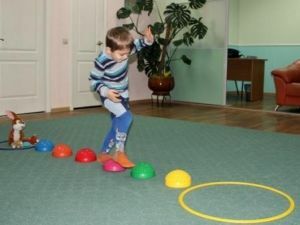 exercises help to tone the brain structures and make them more intensively perform their functional duties.
exercises help to tone the brain structures and make them more intensively perform their functional duties.
Neuropsychological diagnosis and correction at this point in time are important.
Psychological techniques not only allow to establish the presence of deviations in the mental development of a person, but also with the help of specialized techniques and exercises, to help them to correct and direct them in the right direction for further correct development.
Thanks to a well-designed program of classes, the child not only correctly develops all of his higher mental functions, but also adapts himself to the society. His character becomes tempered, emotions are restrained, and the level of attention, memory and thinking increases significantly.

